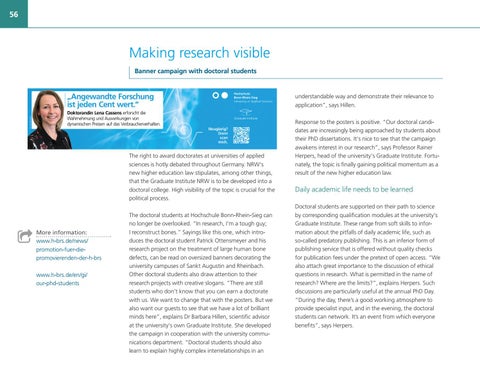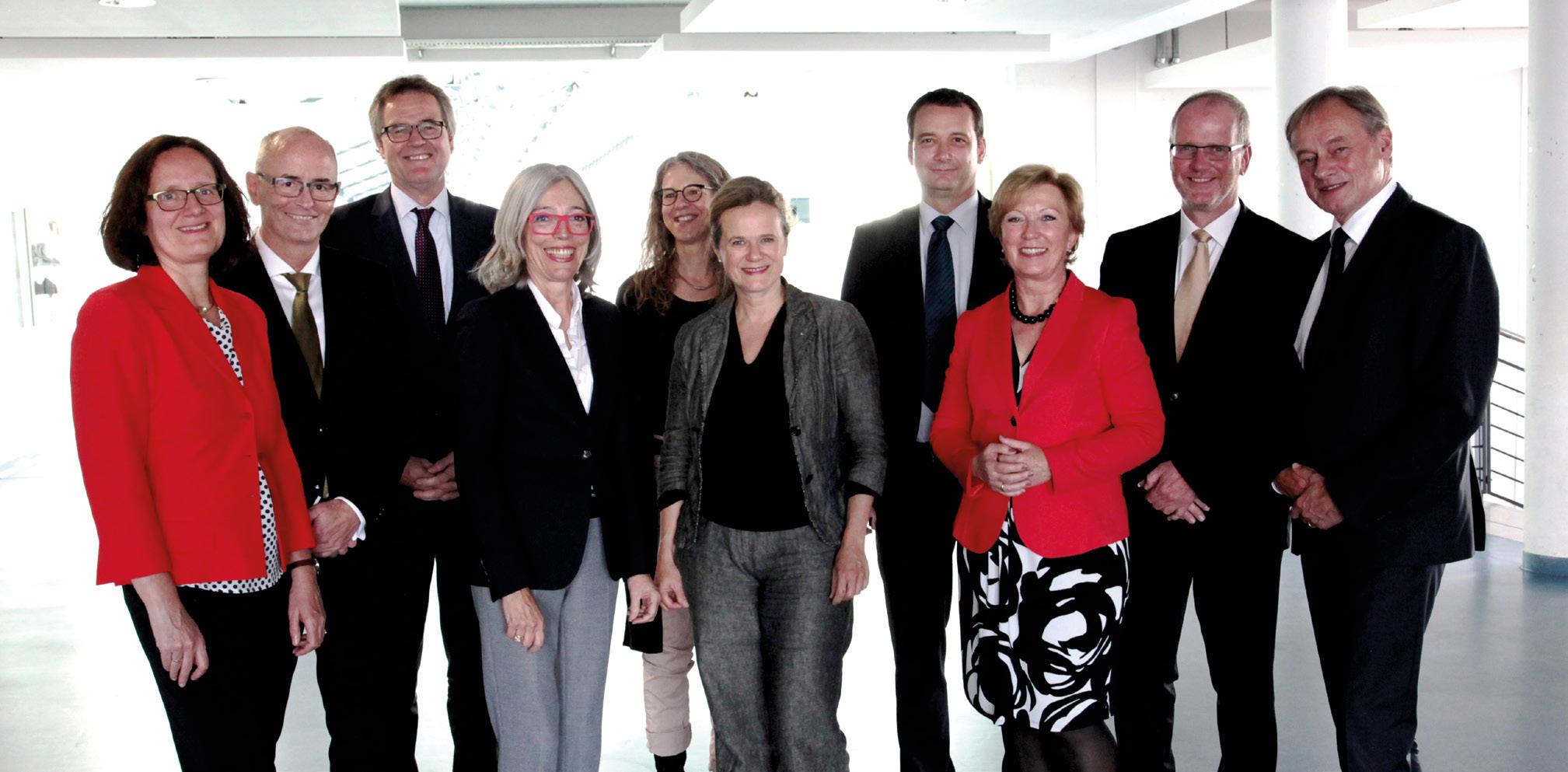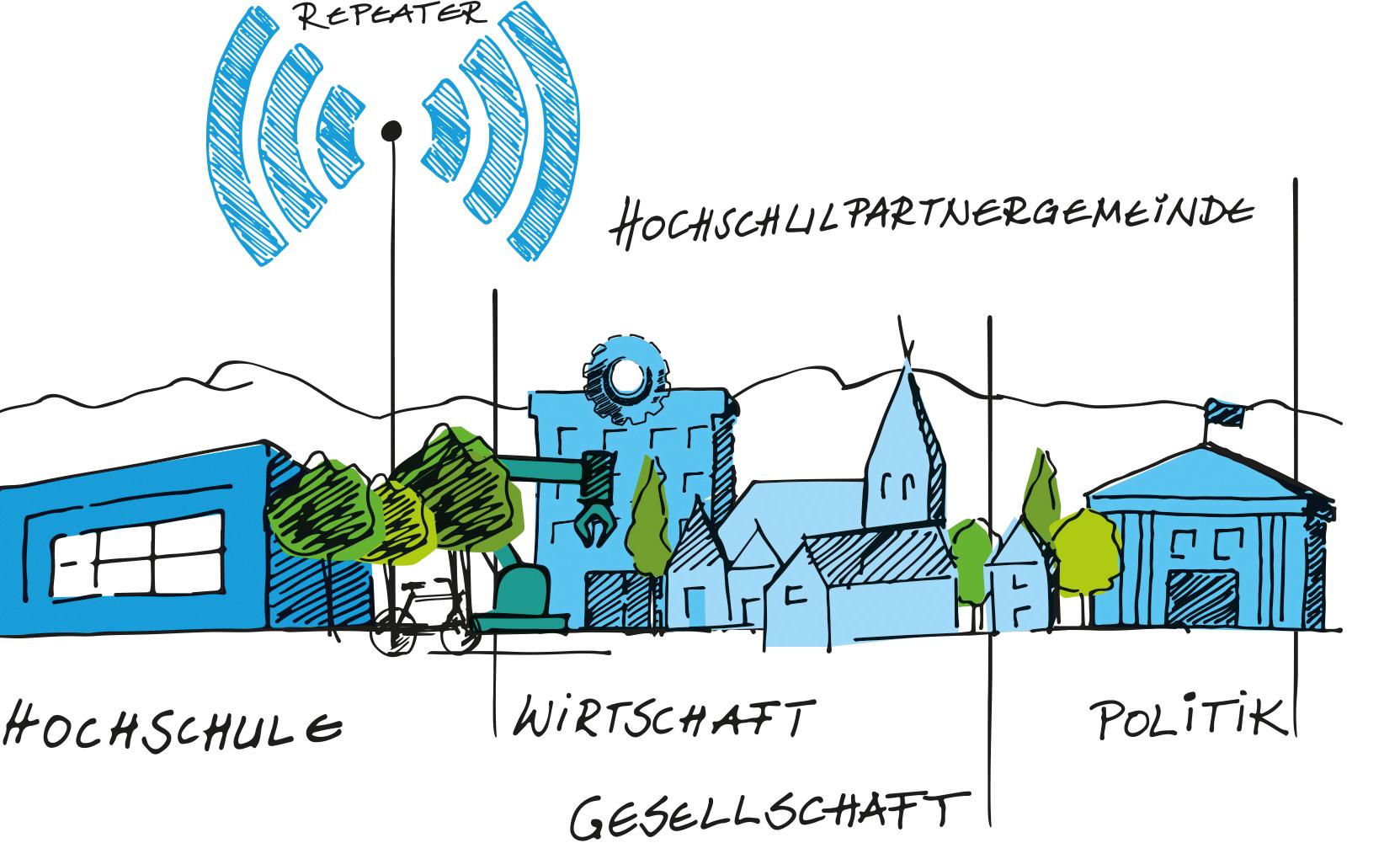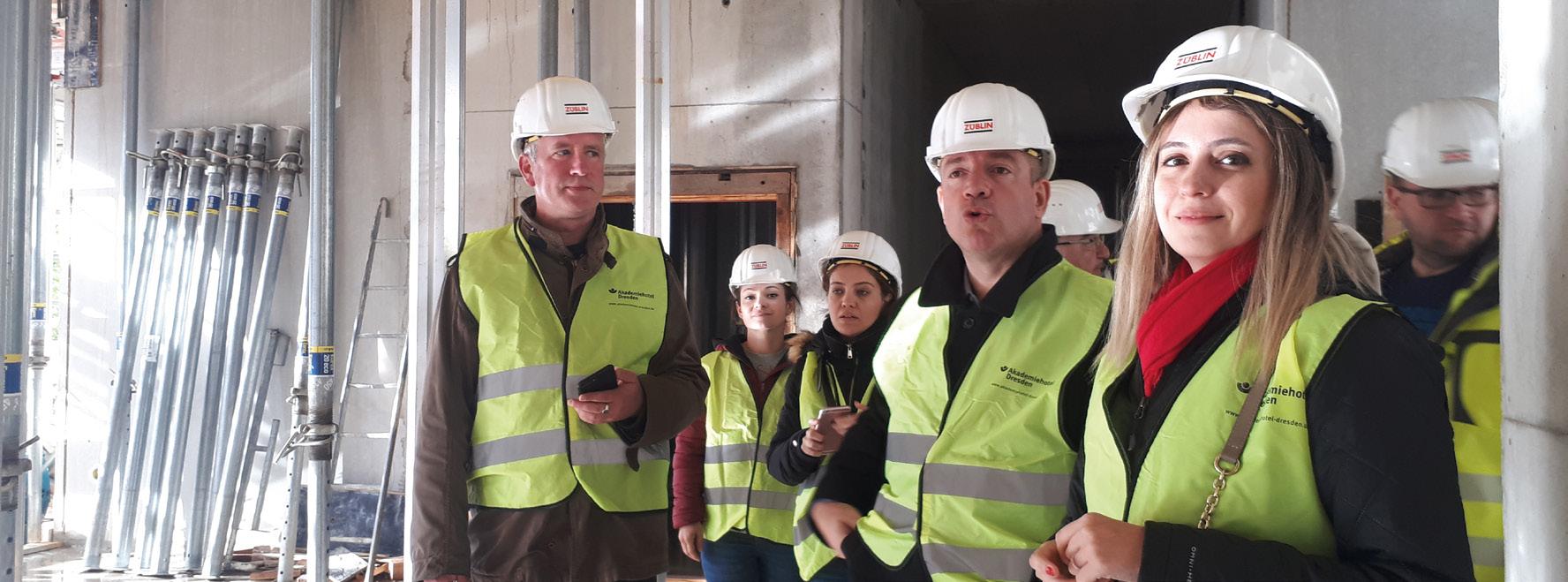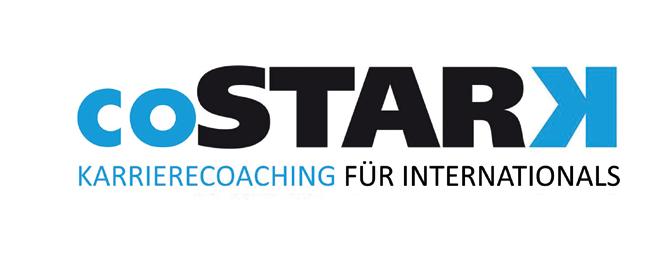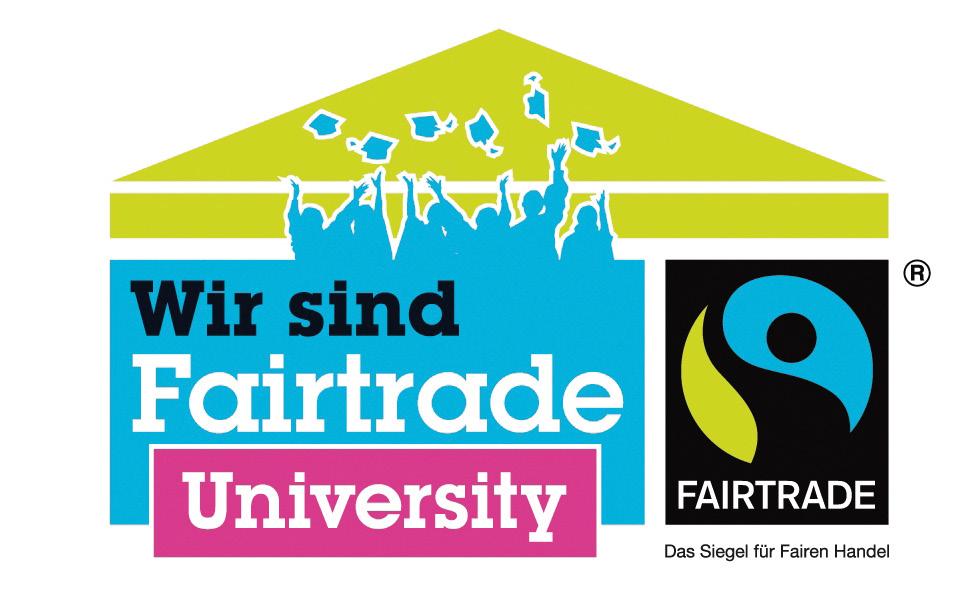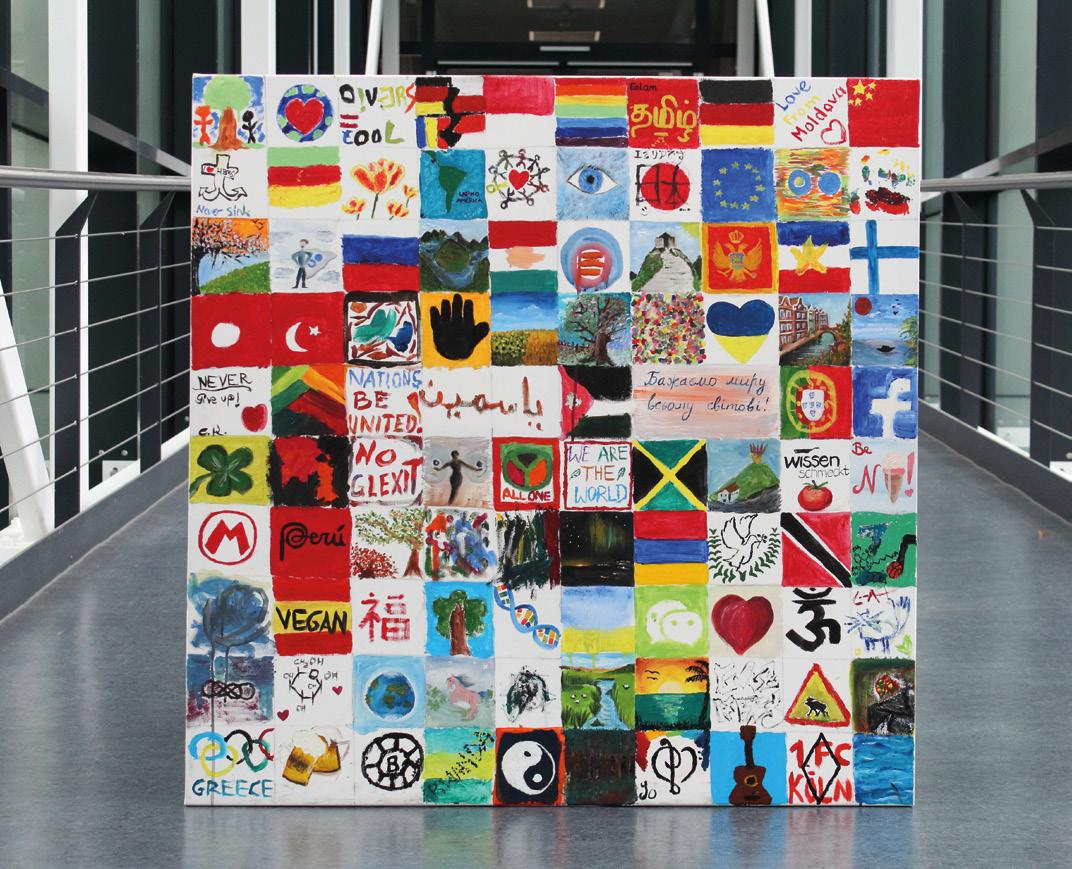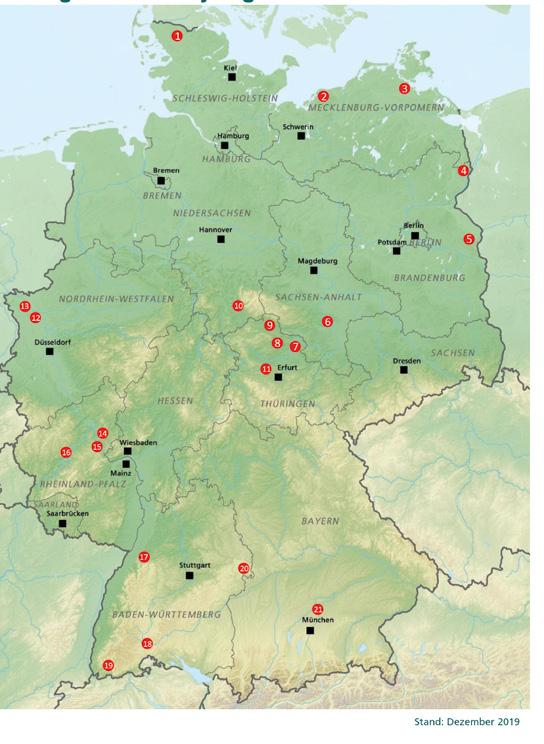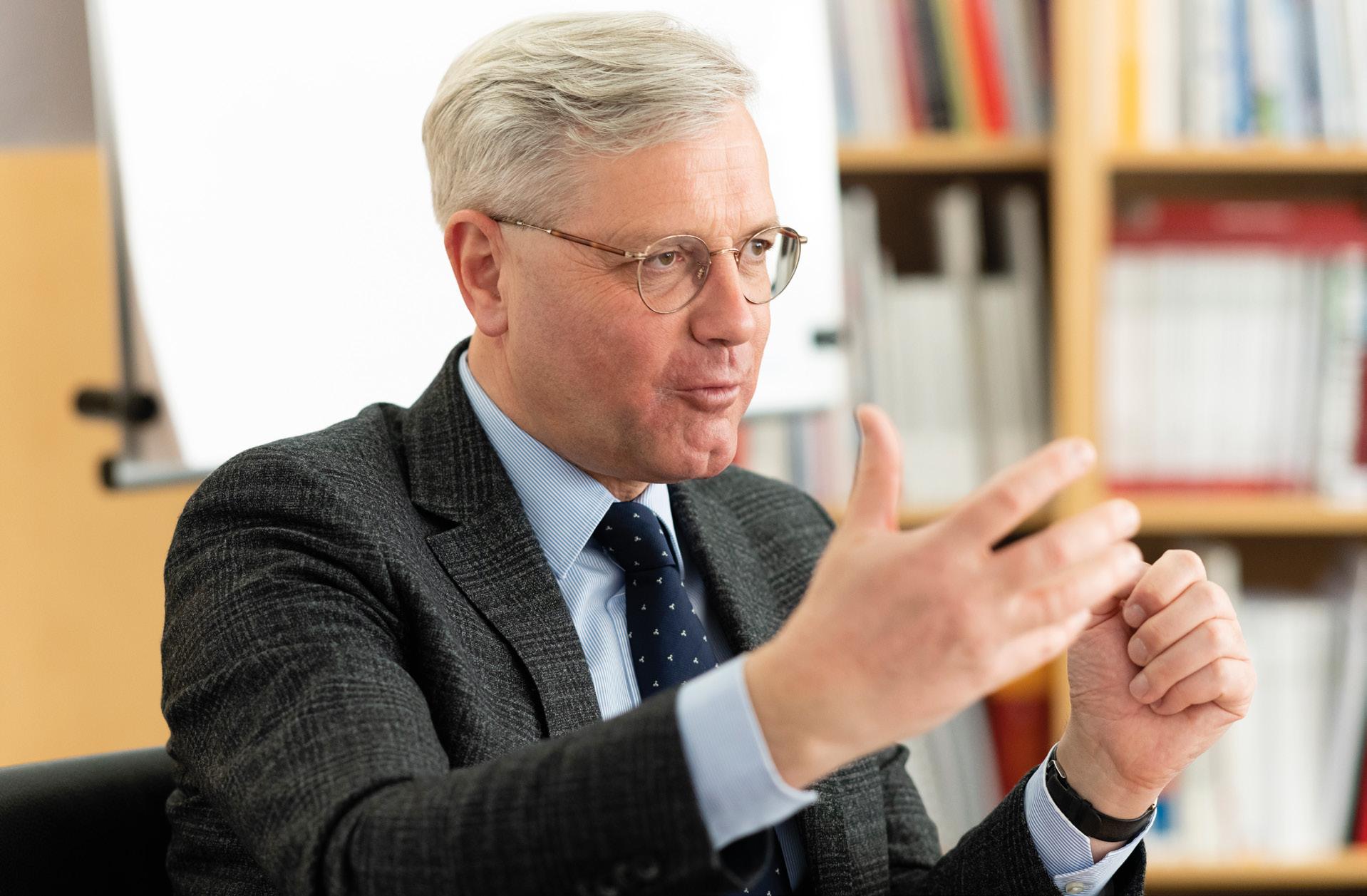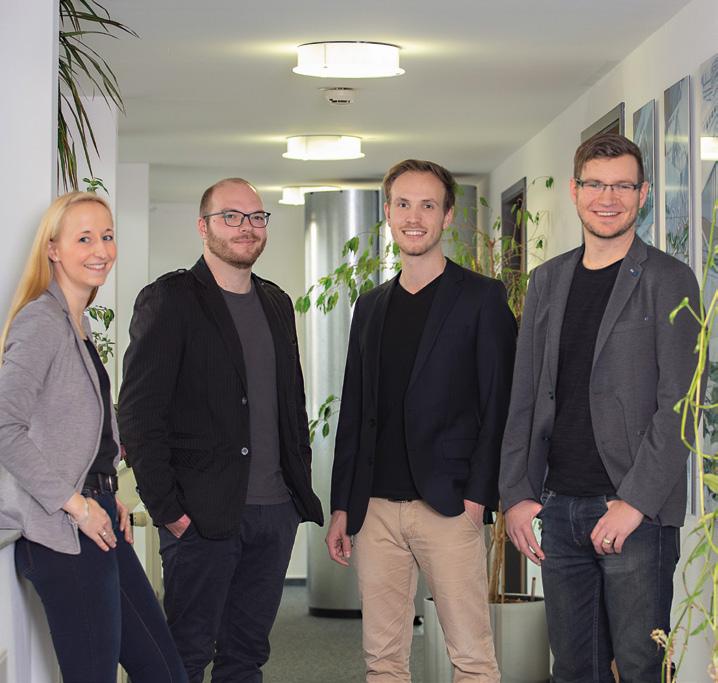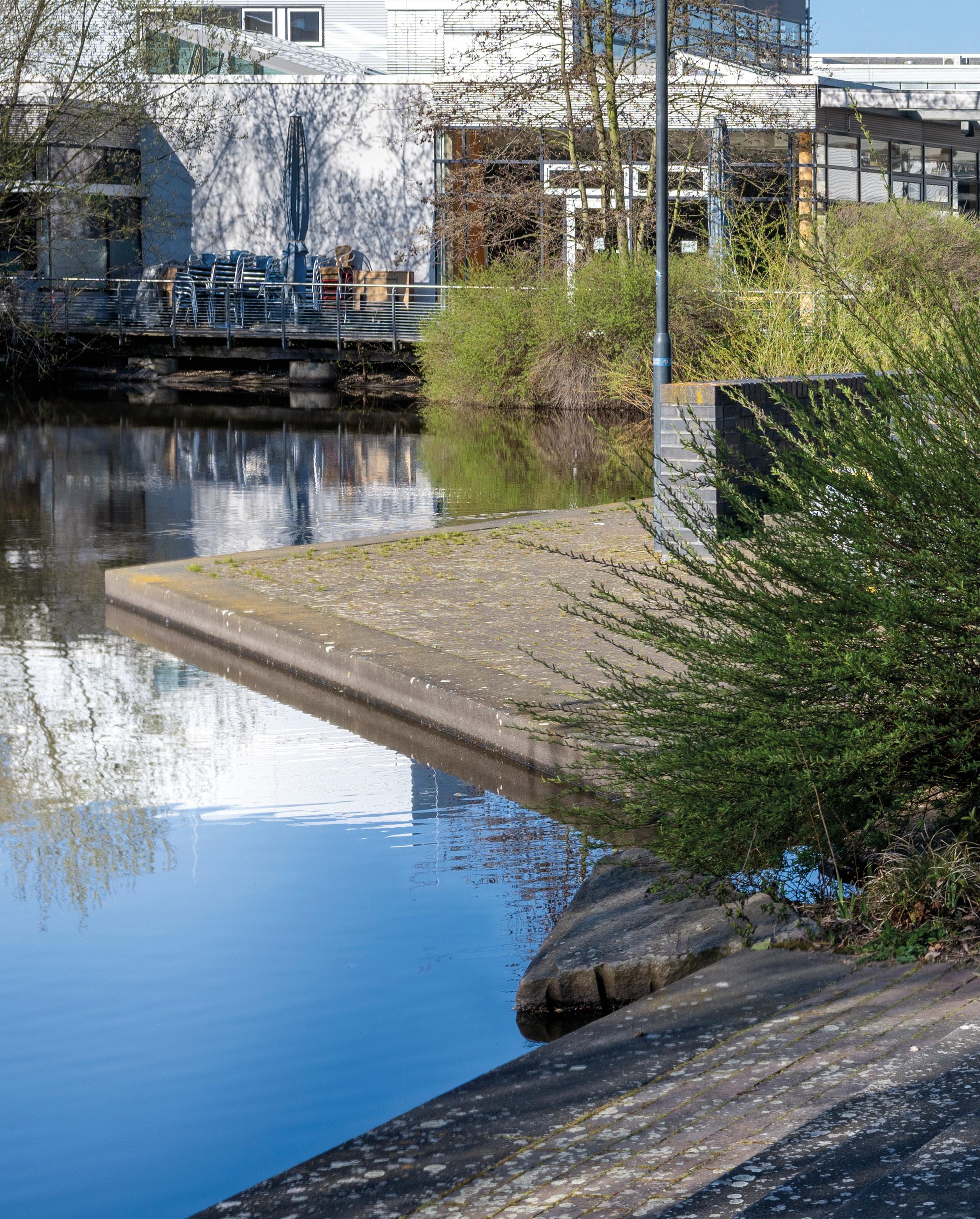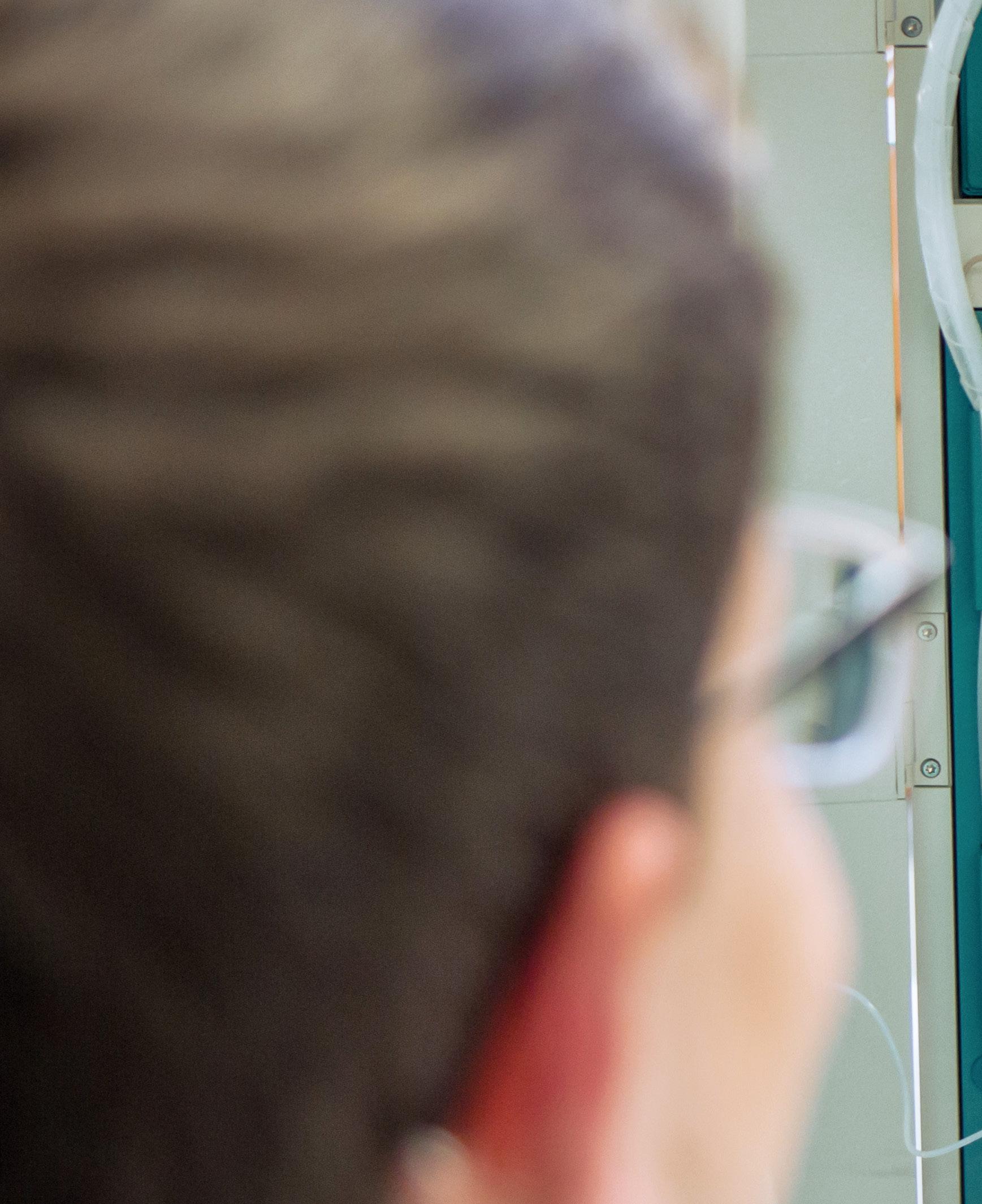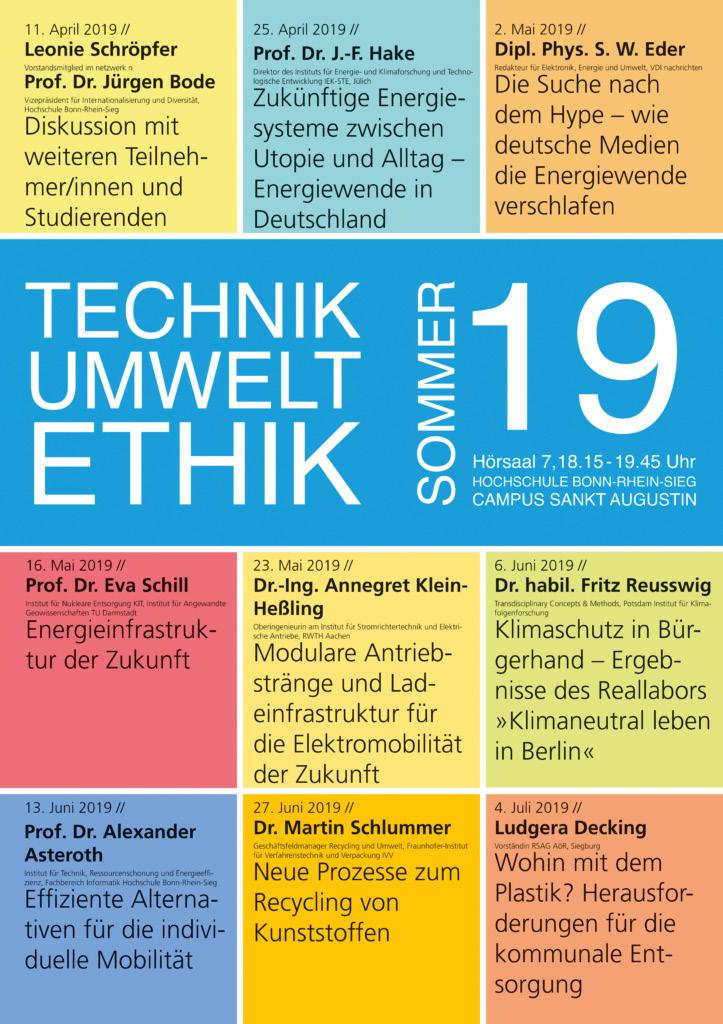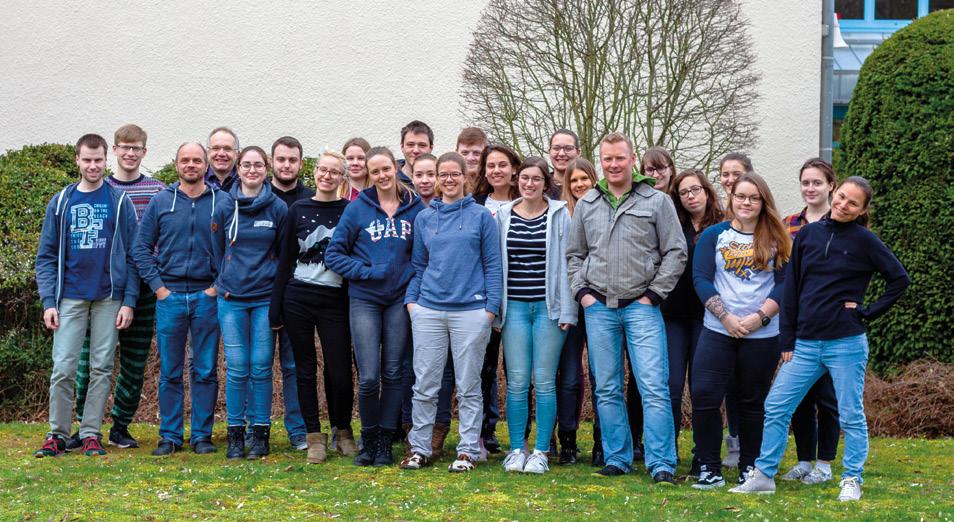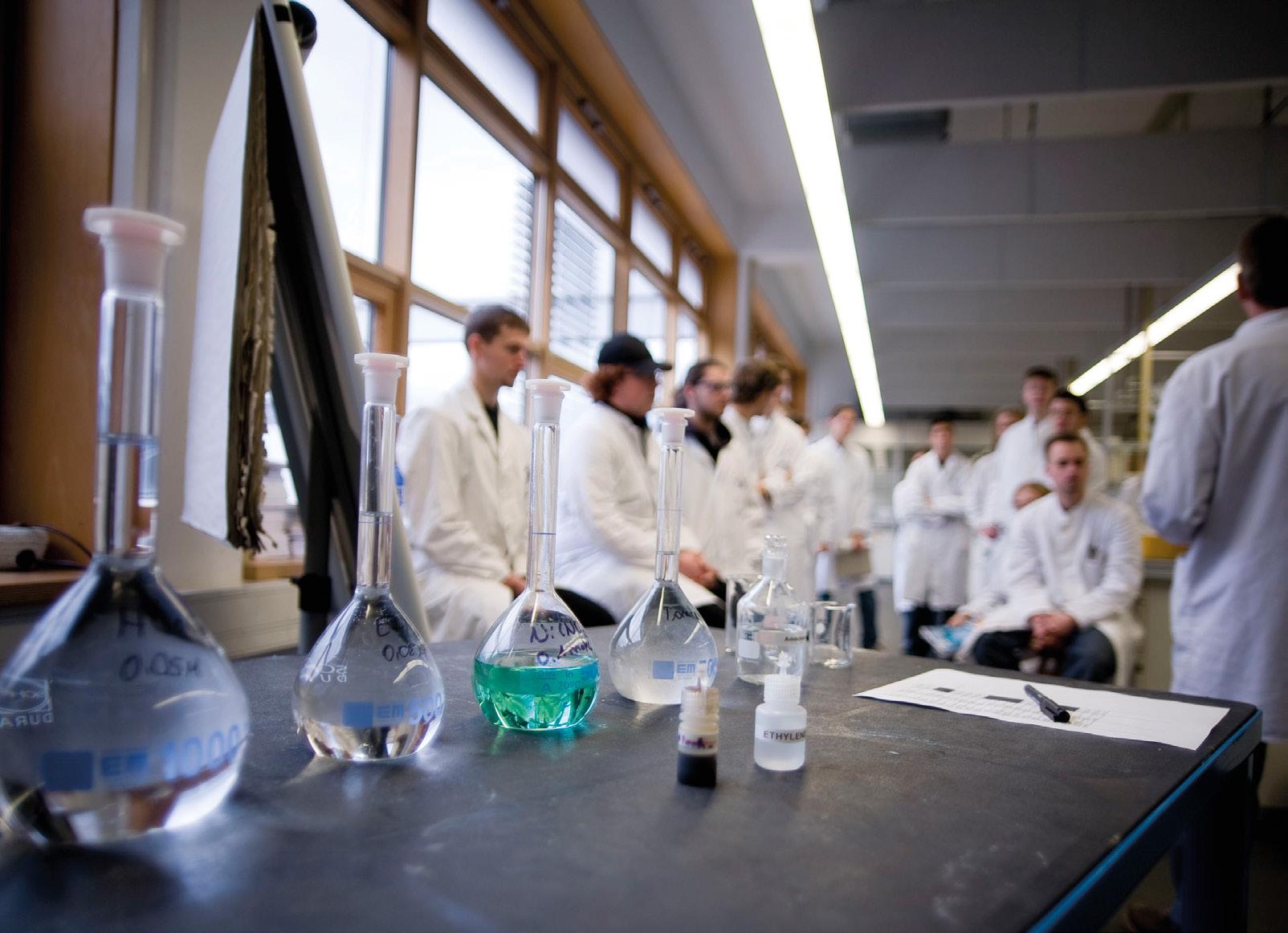56
Making research visible Banner campaign with doctoral students
understandable way and demonstrate their relevance to application”, says Hillen.
The right to award doctorates at universities of applied sciences is hotly debated throughout Germany. NRW‘s new higher education law stipulates, among other things, that the Graduate Institute NRW is to be developed into a doctoral college. High visibility of the topic is crucial for the political process.
More information: www.h-brs.de/news/ promotion-fuer-diepromovierenden-der-h-brs
www.h-brs.de/en/gi/ our-phd-students
The doctoral students at Hochschule Bonn-Rhein-Sieg can no longer be overlooked. “In research, I‘m a tough guy; I reconstruct bones.” Sayings like this one, which introduces the doctoral student Patrick Ottensmeyer and his research project on the treatment of large human bone defects, can be read on oversized banners decorating the university campuses of Sankt Augustin and Rheinbach. Other doctoral students also draw attention to their research projects with creative slogans. “There are still students who don‘t know that you can earn a doctorate with us. We want to change that with the posters. But we also want our guests to see that we have a lot of brilliant minds here”, explains Dr Barbara Hillen, scientific advisor at the university‘s own Graduate Institute. She developed the campaign in cooperation with the university communications department. “Doctoral students should also learn to explain highly complex interrelationships in an
Response to the posters is positive. “Our doctoral candidates are increasingly being approached by students about their PhD dissertations. It‘s nice to see that the campaign awakens interest in our research”, says Professor Rainer Herpers, head of the university‘s Graduate Institute. Fortunately, the topic is finally gaining political momentum as a result of the new higher education law.
Daily academic life needs to be learned Doctoral students are supported on their path to science by corresponding qualification modules at the university‘s Graduate Institute. These range from soft skills to information about the pitfalls of daily academic life, such as so-called predatory publishing. This is an inferior form of publishing service that is offered without quality checks for publication fees under the pretext of open access. “We also attach great importance to the discussion of ethical questions in research. What is permitted in the name of research? Where are the limits?”, explains Herpers. Such discussions are particularly useful at the annual PhD Day. “During the day, there’s a good working atmosphere to provide specialist input, and in the evening, the doctoral students can network. It’s an event from which everyone benefits”, says Herpers.
